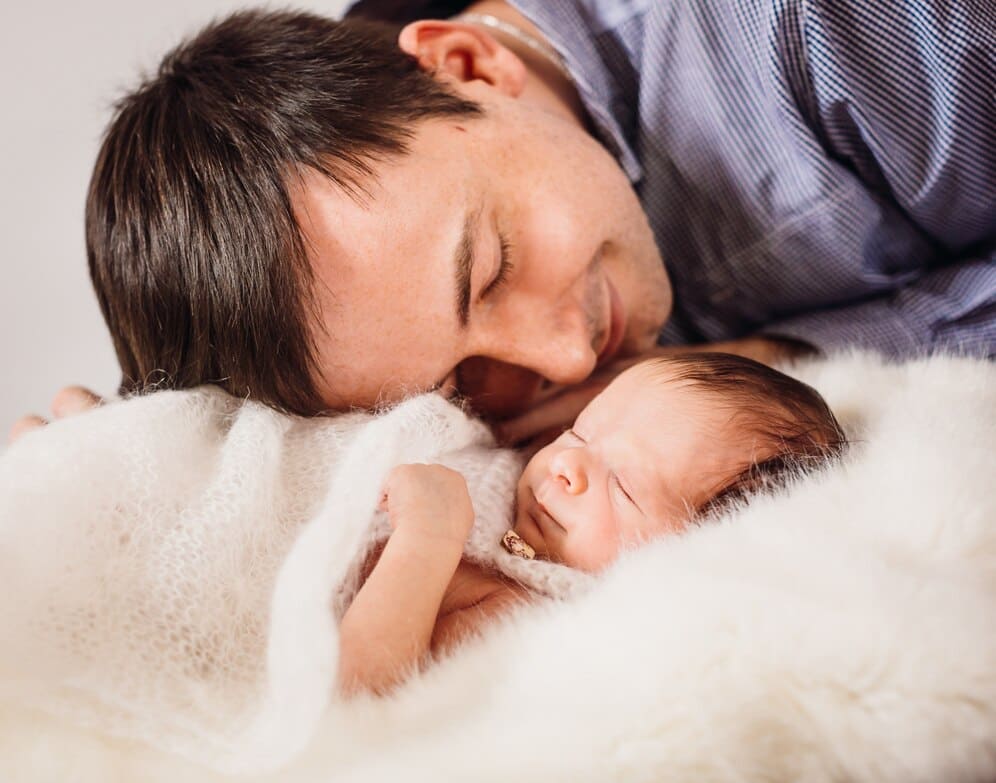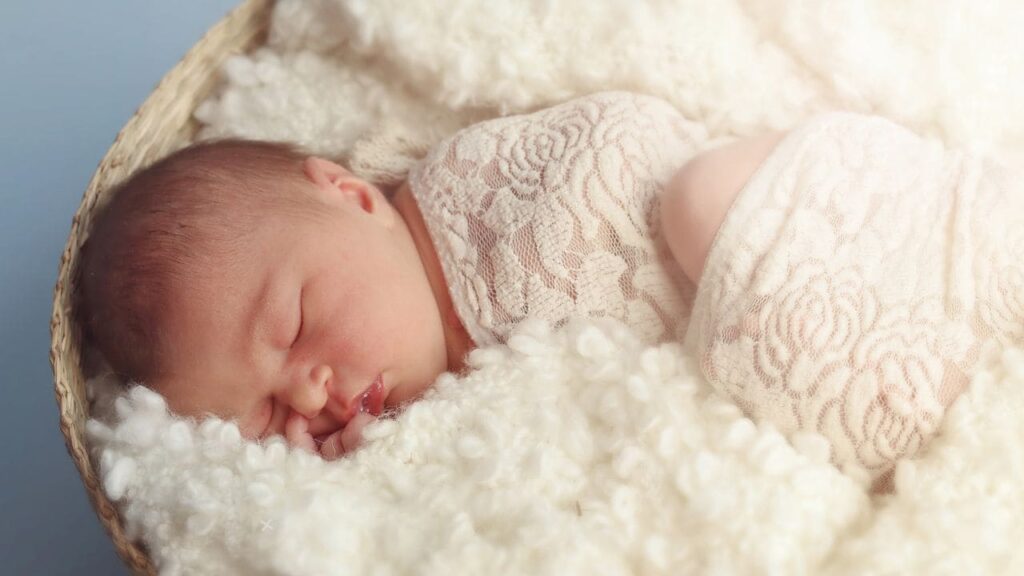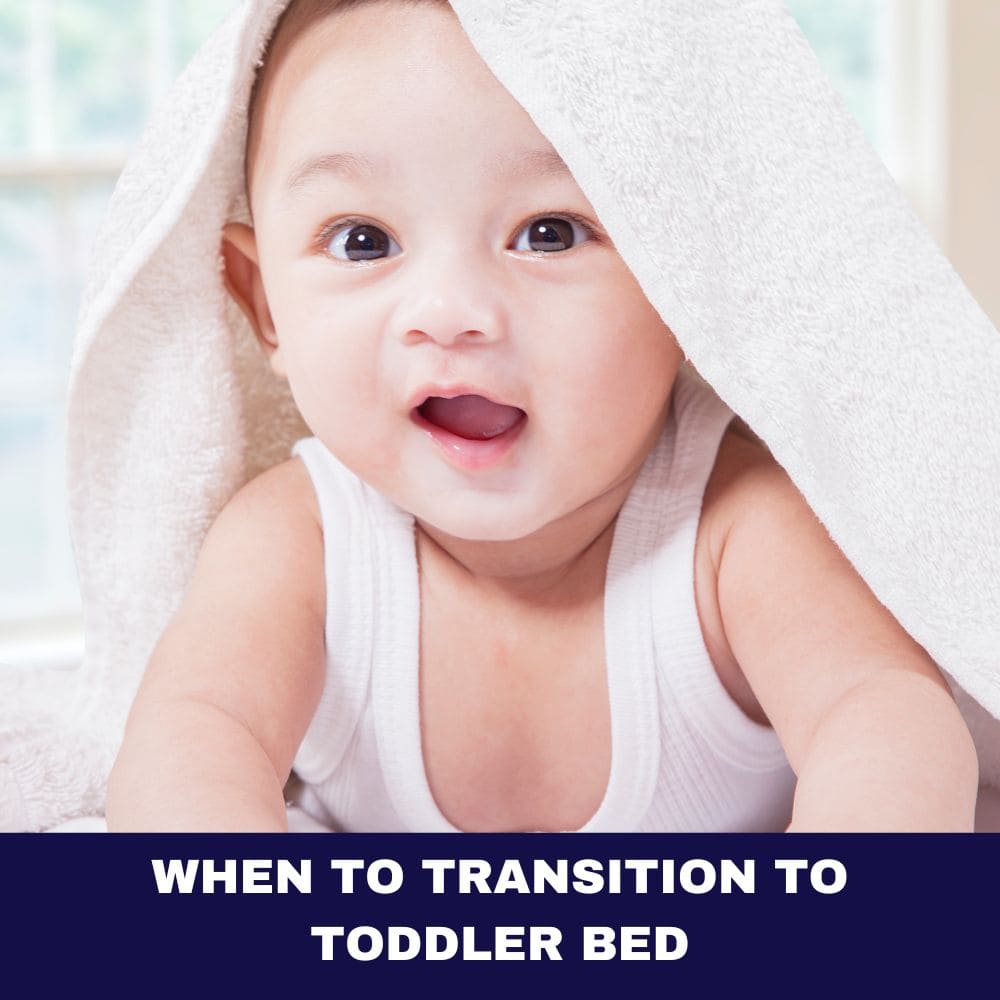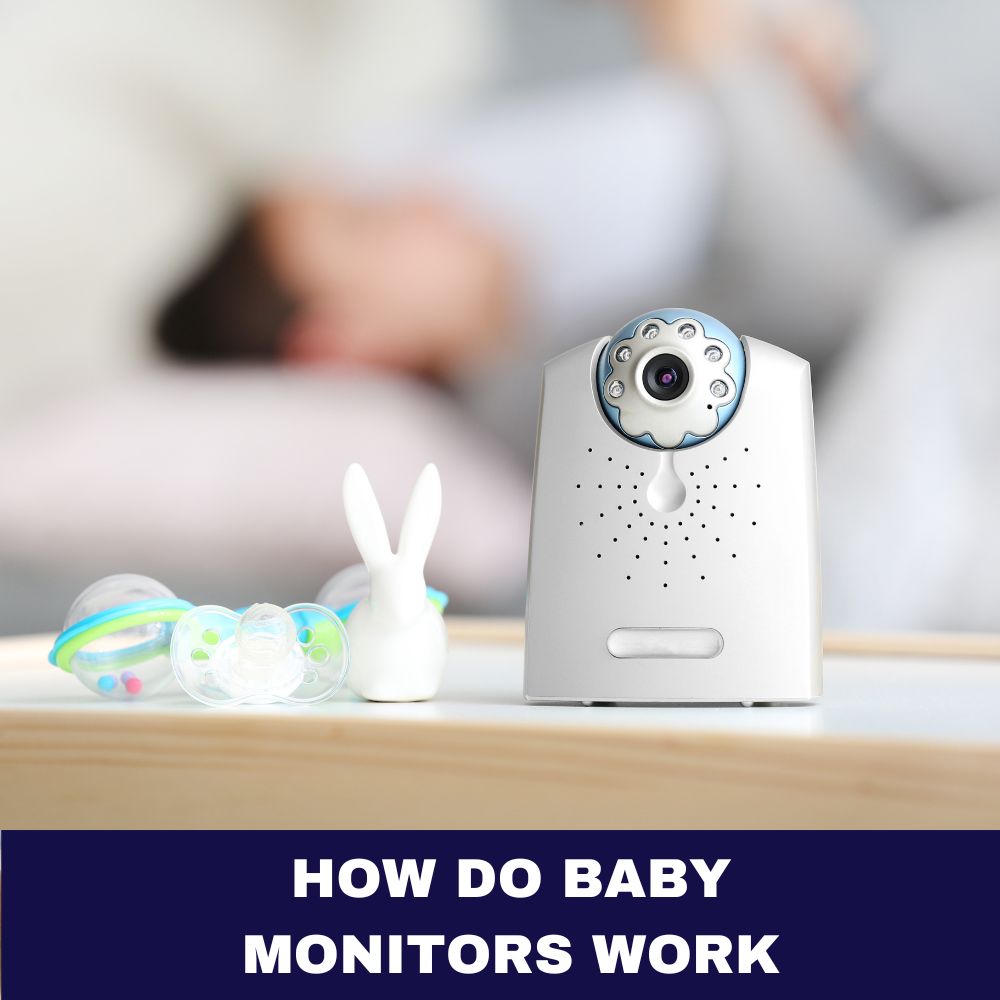As a parent of a young baby, mornings can be rough. The early wake-ups, the cranky behavior, the struggle to start the day on a positive note – it’s all part of the parenting marathon. So when your little one starts sleeping later into the morning, it can feel like a blessing. But Should I Let My Baby Sleep Late in the Morning? Is letting your baby sleep in truly the best idea? What are the impacts? And what if it becomes a habit?
I’ve been there with my two kids. In this post, I’ll share the shocking truths I’ve learned about letting babies sleep late based on my own experiences and expert insights. Read on to find out if you should let your baby catch up on morning Zzzs or if you need to adjust their sleep schedule.

What Does It Mean For a Baby to Sleep Late?
First, what exactly constitutes “late” when it comes to baby sleep patterns? According to most pediatric experts, a baby sleeping past 7-8 AM is generally considered sleeping late for their age range. Keep in mind that recommendations vary greatly by factors like:
- Baby’s age
- Individual sleep needs
- Parental preferences
- Family schedule
But typically, anything after 8 AM pushes the boundaries of age appropriate wake times for most babies.
As an experiment, I started allowing my daughter to sleep until I heard her fuss or babble on the baby monitor. At first it was amazing! No more waking up at the crack of dawn to a screaming infant. We both felt more refreshed.
But over time, it morphed into a bad habit of her sleeping until 9 or even 10 AM many mornings without any signs of stirring. That’s when I knew things had gone too far to be healthy long-term.

Why Might My Baby Be Waking Too Early Normally?
Before deciding whether to let your baby sleep later, it helps to understand what’s causing the early wake ups to begin with. Common reasons include:
- Not getting adequate nighttime sleep: If your baby isn’t getting enough quality sleep at night, they may unintentionally wake early to “catch up.”
- Disruptions to sleep cycles: Environmental factors like noise, light, seasonal time changes etc. could all be interrupting your baby’s sleep cycles causing agitation and restless sleep.
- Physical reasons: Teething pain, chronic ear infections, reflux, and other medical issues might wake your baby.
- Mental leaps: Learning a new skill like rolling over or increased cognitive development may translate to erratic sleep.
- Hunger: Growth spurts and the need for extra calories could lead to earlier hunger pangs.
If your baby is naturally rising at an extremely early hour but isn’t displaying signs of distress, it may just be their natural biological rhythm. Typically that applies more to older babies and toddlers than newborns.
What Are the Potential Perks of Letting Baby Sleep Later?
Giving in to those sleepy baby cuddles instead of rushing to start the day does come with some positives. Benefits can include:
- Improved moods: More sleep sets you both up for less crankiness and better behavior.
- Enhanced alertness: With adequate rest, your baby can focus and learn better during daytime activities.
- Less fussiness: Sleep begets sleep. So more morning sleep may help reduce late day meltdowns.
- Happy parent: Mornings might be more relaxed without the pressure to immediately tend to a crying baby.
I’d be lying if I claimed I didn’t sometimes welcome and enjoy that extra alone time thanks to my daughter’s late starts. A necessary caveat though – never neglect your parental duties just to soak up some “me time!”
What’s the Downside of My Baby Sleeping Too Late?
As with most things, there can be too much of a good thing when it comes to sleep. Potential negatives of oversleeping include:
- Reduced nighttime sleep: Excessive daytime sleep gets subtracted from total night sleep resulting in difficult bedtimes or multiple wakings.
- Shorter naps: Oversleeping in the morning can result in babies fighting or completely skipping later naps.
- Cranky evenings: Underslept kids often deteriorate into monsters by dinner time. No one wants meal times to feel like witching hour!
- Delayed development: Missing windows of prime playtime interaction can slow developmental gains.
- FOMO: You sacrifice mornings snuggling, playing, reading together and making early memories.
- Thrown off schedule: Healthy sleep hygiene is vital for babies under 1 year. Disrupting natural rhythms now makes it harder to establish good habits.
Too much sleep seems an unlikely problem for most overtired parents. But even babies can overdo it resulting in negative effects. Trust me, I learned this lesson personally!

How Do I Know If My Baby Is Getting Too Much Sleep?
Wondering if your baby has crossed the line into oversleeping territory? Watch for these telling signs of excess sleep:
- Resisting naps: Previously sound naptime habits erode no matter what you try.
- Night sleep troubles: Falling asleep, staying asleep through the night or early wakings suddenly become huge battles.
- Crabbiness: You deal with random bouts of intense crying more frequently.
- Lethargy: Your once active baby seems sluggish and disinterested during awake times.
If you observe this behavior combined with sleeping past 8 AM routinely, it’s probably time to troubleshoot their sleep habits.
How Much Sleep Should My Baby Be Getting?
Target sleep amounts differ significantly based on age. According to the American Academy of Pediatrics, here are the recommended sleep totals in a 24 hour period including naps:
- Newborns (0-3 months): 14-17 hours
- Infants (4-12 months): 12-16 hours (including 2-4 naps lasting 30 minutes to 2 hours)
- Toddlers (1-2 years): 11-14 hours (including 1-2 naps)
Keep in mind every baby’s sleep needs fall along a spectrum. If your baby seems happy and healthy getting sleep duration outside those ranges, that can be perfectly normal too. Focus more on your specific baby’s tired signs and temperament.
As you evaluate wake times also factor in optimal windows for night sleep based on age like:
- Newborns: 5-6 hour core night sleep
- 3 months: 6-8 hour core
- 6 months: 8-10 hours core
- 9 months: 9-11 hours core
If your late wakes threaten important nighttime sleep, that’s problematic.
| Age | Night Sleep | Naps | 24-Hour Total |
|---|---|---|---|
| Newborn (0-3 months) | 11-12 hours | 3-5 hours | 14-17 hours |
| Infant (4-11 months) | 11-12 hours | 3-4 hours | 14-16 hours |
| Toddler (1-2 years) | 11-13 hours | 1-3 hours | 12-14 hours |
| Preschooler (3-5 years) | 10-13 hours | 0-2 hours | 11-13 hours |
Signs It’s Time to Transition From Two Naps to One
As your baby grows, their sleep needs and patterns evolve. Around 6-9 months, most infants transition from taking two naps per day down to just one. But how do you know when it’s the right time to drop that second snooze?
Signs your little one might be ready for this milestone include:
- They are older than 6 months. By this point, sleep pressure builds more slowly so two naps becomes less sustainable.
- Naps are short and battle-ridden. They may fall asleep easily but only sleep 30-45 minutes or take forever to drift off in the first place.
- You observe their awake windows expanding naturally. Whereas they previously lasted 1.5-2 hours, now baby happily plays 2.5-3+ hours before acting tired.
- Their night sleep is impacted. Early wakings or bedtime resistance could signal a need to adjust daytime sleep amounts.
- They resist or skip the second nap, no matter how overtired they seem. Rocking, nursing, stroller rides – none of the usual tricks work to save nap #2.
- When they transition to one nap, the single snooze lasts at least 1-2 hours. Cat napping 30-45 minutes even without nap #2 generally means more night sleep is required first before officially dropping to one nap.
Ideal wake window length also shifts dramatically when moving from two naps to one. Watch the clock from the moment baby wakes up until they start rubbing their eyes, yawning or fussing showing sleepiness cues.
For two naps, wake windows usually follow this sequence:
1st wake window: 1.5 hours Nap #1: 1-2 hours 2nd wake window: 2-3 hours Nap #2: 30 min – 2 hours 3rd wake window: 2-3 hours Bedtime
But with a single nap, expect to wake windows like:
1st wake window: 2-3 hours Nap: 1-2 hours 2nd wake window: 4-5 hours Bedtime
Use your knowledge of the baby’s tired signals – not the clock – as your guide to ensure smooth transitions.
Actionable Strategies to Help Baby Sleep Later
If early rising is creating issues, what steps can you take to help encourage your baby sleep in later? Specific tips may include:
- Address early waking: Rule out reasons like hunger or needing soothing that cause baby to rise prematurely. Meet those needs to help them resettle.
- Introduce sleep training: After 4 months old, consistent sleep training methods can help babies learn to self-soothe back to sleep instead of rising for the day too early.
- Offer pacifiers: Sucking soothes babies and pacifiers make excellent transitional objects. Use them strategically as part of your sleep arsenal.
- Set the stage: Ensure baby’s sleep environment is optimized – cool, very dark room with white noise. Pitch blackout curtains make a huge difference in allowing later wake times naturally.
- Shift bedtime: Try systematically putting baby into the crib 15 minutes later each night to gradually ease wake times later using the fading technique popularized by sleep consultants. Remember to always base bedtime on desired wake up time. So if the goal wake time is 7 AM, they should be placed in the crib around 6:30 PM.
- Assess overtiredness: Sometimes an overly exhausted baby has trouble sleeping and wakes prematurely. Adjust schedule to ensure they aren’t pushed past tired signs resulting in stress.
Choose a few methods to try for 2-3 weeks before adding another. Consistency works best with baby sleep training.

To Wake or Not Wake – That Is the Question!
Perhaps the most controversial question of all – if I find my baby sleeping beyond their typical wake time, should I intervene to wake them?
Potential perks of letting them continue sleeping include:
- Maximizing restorative sleep
- Avoiding grumpy overtired behavior later
- Fewer daytime meltdowns
- Allowing growth and development
Reasons you may need to wake a soundly sleeping baby include:
- Feeding concerns
- Missing important nap windows
- Disrupting nighttime sleep
- Delaying feeding therapy or interventions
- Impacting tummy time or therapy
- Interfering with family schedules or obligations
As with most parenting choices, trust your instincts. Know your baby best.
If sleep is obviously needed, let it continue and adjust the day’s schedule accordingly. But waking for feeds, medical issues like reflux precautions, or preserving night sleep take priority.
How Late Mornings Influence Nighttime Sleep
Will letting your baby sleep late come back to bite you once darkness falls? Possibly.
Potential nighttime problems associated with sleeping in include:
- Skipping naps from too much morning sleep
- Being under tired at bedtime so they fight sleep
- Increased night wakings due to wanting to “play catch up”
- Earlier than desired wake-ups the next day
However, this isn’t always the case.
Sometimes, babies naturally phase later as they mature developmentally. And later mornings may have no impact on total nighttime sleep especially if:
- Quality naps are preserved
- Bedtime shifts later naturally too
- Sleep pressure builds allowing solid night sleep
- It aligns with the baby’s innate rhythm
Pay attention to any correlation between late mornings and battles at bedtime. If allowing a baby to wake later constantly yields painful bedtimes, it likely isn’t sustainable long-term without adjustments.
Finding the Right Nap Balance
Speaking of naps, preserving quality daytime sleep is crucial. When mornings shift later, so too must nap scheduling.
Treat awake time blocks like a puzzle. Longer morning awake duration compresses time for appropriate nap spacing unless bedtime also shifts later to compensate.
Watch for sleepy signs like eye rubbing, yawning, fuzzy head rubbing and don’t let baby exceed optimal awake times during the day. Cat naps may help bridge gaps but monitor total 24-hour sleep to avoid unintended overtiredness.
What If My Baby Is Just an Early Bird?
Despite your best efforts, some babies are just genetically predisposed to be early risers. Their natural circadian rhythms default to mornings.
If by 4-6 months old you have consistently tried various methods to gently nudge wake times later without lasting success, biological factors may override your agenda.
In that case, tips for dealing with early birds include:
- Adjusting your own sleep schedule to match your baby’s rhythms
- Planning calming activities like books, songs or baby massages to ease the transition
- Identifying pockets of time for you to nap when possible
- Accepting this as your baby’s normal
- Recruiting help like grandparents to trade off occasional early mornings
- Enjoying the perks of extra morning play time together!
The key is resisting the urge to become frustrated or force the issue. Flow with your baby’s cues when reasonable rather than putting up constant resistance.
How to Establish Healthy Sleep Habits
Whether you want to encourage slightly later mornings or embrace an early riser, optimizing healthy sleep hygiene sets your child up for success long-term.
Critical foundations like consistent, age-appropriate sleep schedules, predictable bedtime routines, sleep-friendly environments and self-soothing skills all make a night and day difference for sleep success.
Invest early and the dividends pay off exponentially in happier bedtimes, less sleep crankiness, better naps and improved behavior for years to come.
Conclusion – Giving Baby the Gift of Rest
While the debate rages on regarding sleeping late versus early rising for babies, one fact remains undisputed – quality sleep directly fuels growth, development and overall well-being.
As parents trying to make the best decisions possible, we must walk the tightrope balancing our baby’s needs and our own. Sometimes, the answer lies in compromise or creatively working around challenges.
My advice? Do what works for your family’s lifestyle and your baby’s temperament – whether sticking to an “early to bed, early to rise” adage or allowing later mornings.
Remain flexible, adaptable and willing to troubleshoot when sleep derails. Consistency, perseverance and teamwork help overcome inevitable hiccups.
Above all, appreciate rest as the precious commodity it is for our little ones. Their rapidly growing bodies and brains require tremendous energy inputs to thrive.
When all is said and done, your baby sleeping peacefully – morning, noon or night – is a beautiful sight to behold!
I hope this post brought clarity to deciding if letting your baby sleep late is the right choice or not. Here’s to many sweet dreams ahead!
FAQ – Should I Let My Baby Sleep Late in the Morning?
What are the benefits of letting my baby sleep late in the morning?
Potential benefits include improved moods, more alertness during daytime activities, less late-day fussiness, and a more relaxed morning for parents. Getting adequate sleep sets babies up for success.
At what age is it considered “late” for a baby to sleep in?
Generally pediatric experts say anything past 7-8 AM is sleeping late for babies. But optimal wake times depend on the age and sleep needs of your individual child.
Could allowing late mornings negatively impact my baby’s nighttime sleep?
Possibly. Late mornings that shorten naps or throw off sleep pressure building can make it harder for some babies to settle at bedtime. Watch for correlations between late mornings and bedtime battles.
How much sleep should my baby be getting each day including naps?
Recommendations are 14-17 hours for newborns, 12-16 hours for infants (with 2-4 naps) and 11-14 hours for toddlers (with 1-2 naps). But focus more on your baby’s tired signs than rigid totals.
If my baby keeps waking early no matter what I try, what should I do?
Some babies are just genetically predisposed to be early risers. Accept this as their normal rhythm, adjust your schedule to match theirs, and find ways to cope with the early mornings.












